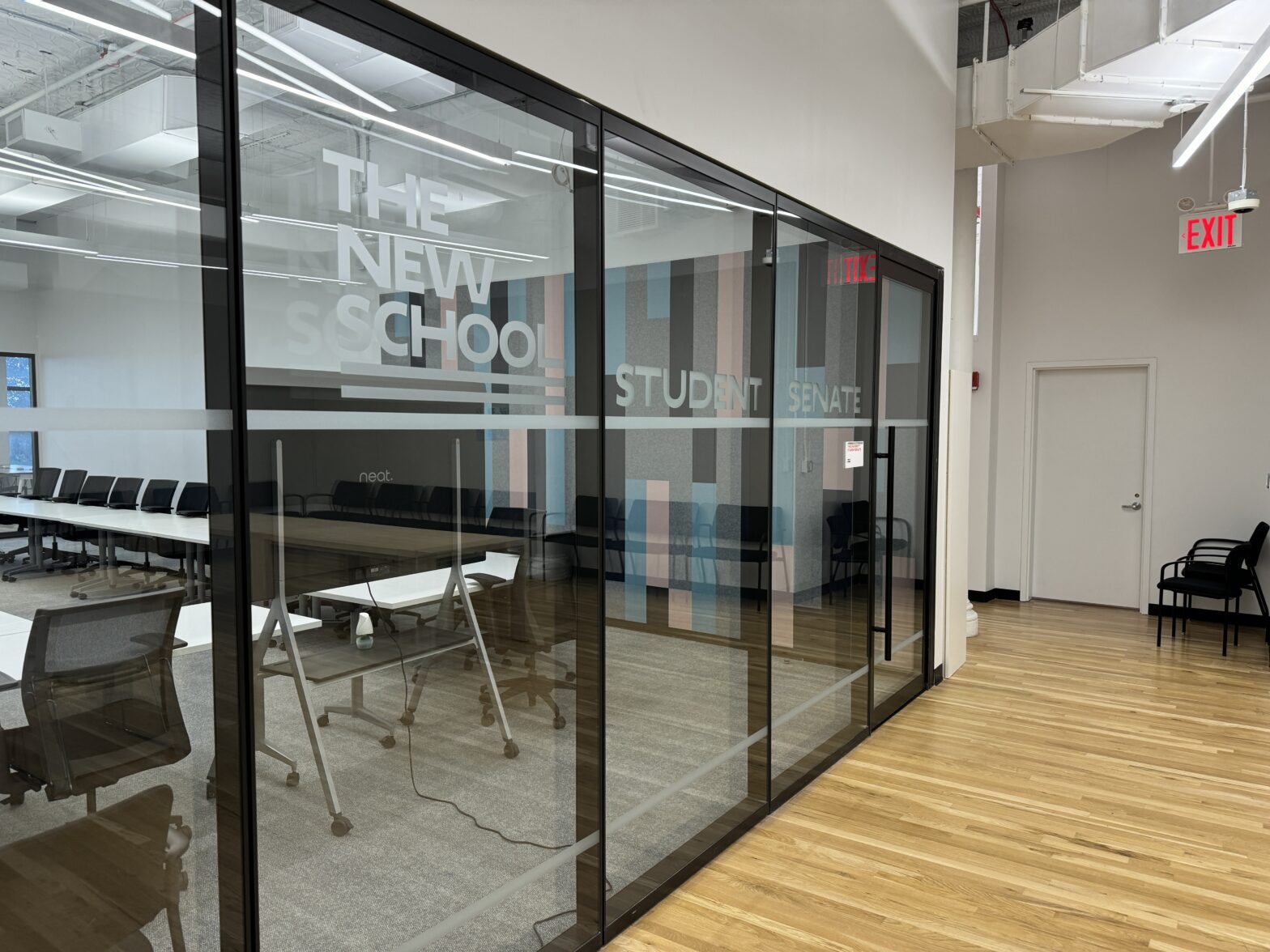In an attempt to pressure the university’s Investment Committee of the Board of Trustees to vote in favor of divestment from stocks and companies that fund or support Israel, the University Student Senate (USS) voted 16-1 to halt all external funding, impacting student organizations who rely on senate funds for operations and events, on Aug. 23.
The senate saw the funding halt as a way to “make a difference [and] … bring awareness [as a] formal organization,” Adam Young said, the chair of USS and a second-year at Eugene Lang College of Liberal Arts. The senate is in charge of funding registered student organizations from their Community Fund, which is managed jointly by the Student Leadership and Involvement (SLI) office. According to Young, the senate’s total fund currently holds roughly $400,000. The fund is replenished by the university’s more than 10,000 students, who each pay $8 a semester toward the fund. Young said conversations about halting funding began in late July, around when the senate received new funding guidelines for the 2024-2025 academic year. He added that “a large part of this funding halt is to … learn and understand [those] new guidelines.”
The spring 2024 semester ended with many community members expressing solidarity with Palestine and a desire for university divestment from companies linked to Israel. This funding halt is one of the latest actions in support of a demand to “Divest from Death,” which was first made by TNS Students for Justice in Palestine (SJP) earlier this year and has since been widely endorsed by students, faculty, and alumni at TNS. The divestment demand asks the university to remove a list of 13 companies with financial ties to Israel from their investment portfolio. The list was provided by the Advisory Committee on Investor Responsibility, which was reactivated in May. Young made clear that while The New School’s SJP chapter was an “inspiration” to them, this decision was not made in collaboration with the group.
The USS decision to reopen funding will be based on the outcome of the university Investment Committee’s divestment vote, which, at the earliest, could take place at the committee’s meeting later this month. “The USS will reopen our funding when the university divests. Discussions are ongoing on what will happen if the university does not divest,” Young said.
However on Aug. 26, Shondrika Merritt, associate provost for student affairs and dean of students, said in a school-wide email that the university would “temporarily transfer the responsibility of managing this [fund] to the Division of Student Success,” as the senate does not “own or fully manage” the fund. If student organizations apply for funding now, their application will be solely reviewed by the SLI office within Student Success, negating the material impact of the senate’s action, as organizations could get funding if approved.
“I respect the action they took together as student leaders … and I would not do anything to harm that,” Merritt said in an interview with the New School Free Press. “But I want to make sure that [a] hundred percent of our community understands that they still have access to the things we say that we provide for them.”
As the SLI office and USS have always jointly managed the Community Fund, no administrative changes needed to take place for this transfer of responsibility to happen, according to Merritt. In the past, the senate decided what groups would be funded and SLI assisted with logistics. Now, SLI is in charge of funding decisions for student groups without consultation with the senate.
USS and the university confirmed that the senate still has access to utilize the fund and that student senators had used it for internal projects since the halt, though Young said senators are allegedly unable to see the fund’s balance. Merritt told the Free Press that the university “would not hide” anything from senators and that the transfer of decision-making power to SLI is only a “temporary measure” until senators lift their funding halt. However, Young said he was “uncertain” of this and whether they had complete access to the fund based on tense conversations he had with Merritt. Regardless, Young said the senate would not vote to fund a student organization until the university divests, and all funding decisions would come from the SLI office until then.
Young said that this response from the university “goes directly against our wishes,” but was “anticipated.” He said the senate calls on SLI employees to “stand in solidarity” and “refuse to process funding proposals,” unless it poses a risk to their job security. “Whether Student Success pulls our funds really shows their dedication to a progressive and uplifting environment for student leaders,” Young said.
Merritt said that “avoiding conflicts of interest” between the university and student groups is part of the reason the USS is in charge of making these funding decisions. Despite this, she justified the university’s decision, saying she has “a responsibility to the school community to make sure that [the Community Fund] supports the students.”
Young said the reaction from student organizations that received funding in the past has been “mixed,” with some harshly opposing the funding halt and others creating a petition of support, which 15 groups have currently signed on to.
“The thought that there are simply no universities left in Palestine and 40,000 people have been killed, and that number continues to rise,” guided the senate’s decision to halt funding, said Young. “I believe our student groups should be willing to sacrifice [until the divestment vote] to put pressure on the Investment Committee. I think it’s a very small price to pay in the face of the global injustices happening in the Middle East.”








Leave a Reply